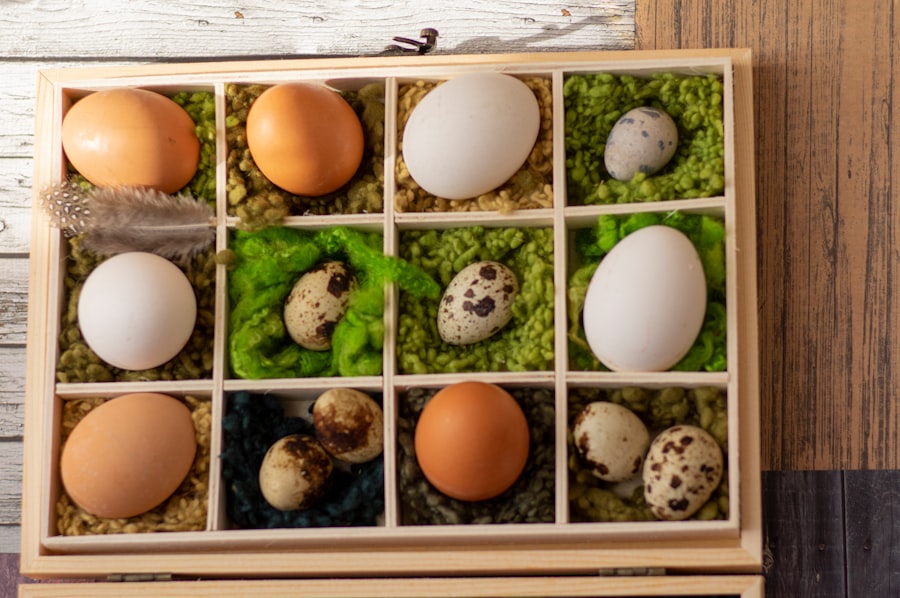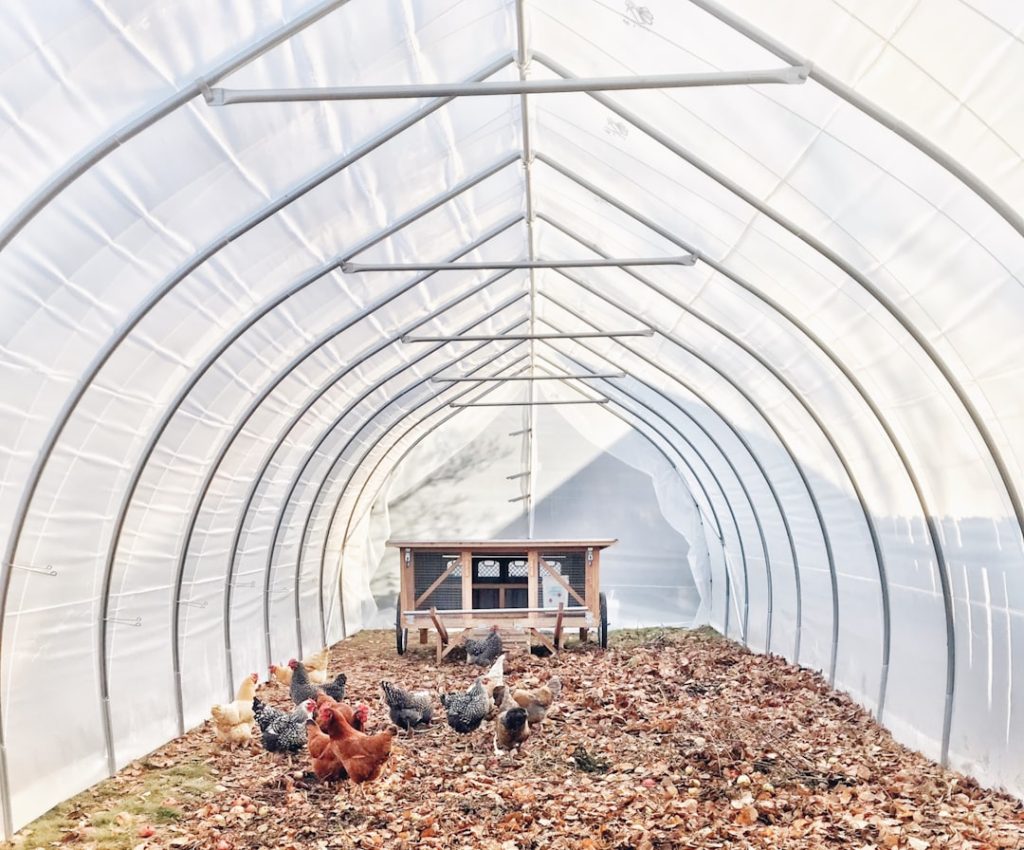Raising chickens requires understanding and meeting their basic needs for a healthy and thriving flock. Essential elements of chicken care include:
1. Housing: Provide a secure coop that protects from predators and weather, with adequate space for roosting and nesting.
2. Nutrition: Offer a balanced diet consisting of grains, protein, vitamins, and minerals. 3.
Hydration: Ensure constant access to fresh, clean water. 4. Space: Allow room for chickens to roam, scratch, and engage in natural behaviors.
5. Environment: Provide access to fresh air and sunlight. 6.
Health management: Conduct regular health checks and maintain a stress-free environment. 7. Social needs: Recognize that chickens are social animals that thrive in flocks.
8. Predator protection: Implement measures to safeguard chickens from potential threats. By addressing these fundamental aspects of chicken care, owners can create a suitable environment that promotes the well-being and happiness of their flock.
Proper management of these factors is crucial for maintaining healthy chickens and potentially enjoying the benefits of egg production or meat, depending on the purpose of raising the birds.
Table of Contents
- 1 Providing Proper Nutrition and Water
- 2 Creating a Safe and Secure Coop
- 3 Regular Health Checks and Veterinary Care
- 4 Protecting Chickens from Predators
- 5 Managing Stress and Environmental Factors
- 6 Building a Strong Relationship with Your Chickens
- 7 FAQs
- 7.1 What are the basic needs for keeping chickens alive?
- 7.2 What type of shelter is best for chickens?
- 7.3 What should I feed my chickens to keep them alive?
- 7.4 How much water do chickens need to stay alive?
- 7.5 How can I protect my chickens from predators?
- 7.6 What are some common health issues that can affect chickens?
- 7.7 How can I keep my chickens safe from extreme weather conditions?
Key Takeaways
- Understanding the basics of chicken care is essential for providing a healthy and happy environment for your chickens.
- Providing proper nutrition and access to clean water is crucial for the overall well-being of your chickens.
- Creating a safe and secure coop will protect your chickens from predators and provide them with a comfortable living space.
- Regular health checks and veterinary care are important for preventing and treating any potential health issues in your chickens.
- Protecting chickens from predators is essential for their safety and security, and can be achieved through proper coop design and predator-proofing measures.
- Managing stress and environmental factors is important for maintaining the mental and physical health of your chickens.
- Building a strong relationship with your chickens through regular interaction and care will create a bond of trust and understanding.
Providing Proper Nutrition and Water
Providing a Balanced Diet
It’s important to provide them with access to a commercial feed that is specifically formulated for chickens, as well as supplemental treats such as fruits, vegetables, and mealworms. Additionally, providing access to fresh water at all times is crucial for their health and well-being.
The Importance of Fresh Water
Water is essential for digestion, temperature regulation, and overall health. It’s important to regularly clean and refill their water containers to prevent the growth of bacteria and algae. Additionally, during hot weather, it’s important to provide shade and cool water to prevent dehydration.
Ensuring Overall Health and Well-being
Understanding the nutritional needs of your chickens and providing them with a balanced diet and access to fresh water is essential for their overall health and well-being.
Creating a Safe and Secure Coop

Creating a safe and secure coop is essential for the health and well-being of your chickens. A well-designed coop provides protection from predators, shelter from the elements, and a comfortable environment for your flock. When designing a coop, it’s important to consider the size of your flock, the climate in your area, and the potential threats from predators.
The coop should be spacious enough to allow for natural behaviors such as roosting and nesting, as well as easy to clean and maintain. In addition to providing a safe and secure coop, it’s important to regularly inspect the coop for any signs of wear or damage. Repair any holes or weak spots in the fencing or roofing to prevent predators from gaining access to your flock.
Additionally, it’s important to provide adequate ventilation to prevent the buildup of moisture and ammonia inside the coop. Understanding the importance of a safe and secure coop and providing one for your chickens is essential for their overall health and well-being.
Regular Health Checks and Veterinary Care
Regular health checks and veterinary care are essential for maintaining the health and well-being of your chickens. It’s important to regularly inspect your flock for any signs of illness or injury, as well as provide them with regular vaccinations and parasite control. Additionally, it’s important to establish a relationship with a poultry veterinarian who can provide guidance on proper care and treatment for your flock.
In addition to regular health checks, it’s important to provide your chickens with a clean and sanitary environment to prevent the spread of disease. Regularly clean and disinfect their coop, nesting boxes, and feeders to prevent the buildup of bacteria and parasites. Additionally, it’s important to practice good biosecurity measures to prevent the introduction of disease into your flock.
Understanding the importance of regular health checks and veterinary care for your chickens is essential for their overall health and well-being.
Protecting Chickens from Predators
Protecting your chickens from predators is essential for their safety and well-being. Common predators such as foxes, raccoons, hawks, and snakes pose a threat to your flock and it’s important to take measures to keep them safe. When designing your coop, it’s important to use sturdy fencing and secure latches to prevent predators from gaining access.
Additionally, it’s important to provide your chickens with a secure run or free-range area that is protected from aerial predators. In addition to securing their living space, it’s important to be vigilant about potential threats from predators. Regularly inspect the perimeter of their coop for signs of digging or entry points from predators.
Additionally, it’s important to provide your chickens with a safe place to retreat in case of an attack, such as a covered run or hiding spots within their living area. Understanding the threats posed by predators and taking measures to protect your chickens is essential for their overall safety and well-being.
Managing Stress and Environmental Factors

Creating a Calm Environment
Chickens are sensitive animals that can be affected by changes in their environment, such as extreme temperatures, overcrowding, or loud noises. It’s important to provide them with a calm and stress-free environment in order to prevent illness and behavioral issues.
Providing Essential Resources
Additionally, it’s important to provide them with access to fresh air, sunlight, and space to roam in order to promote their overall well-being. In addition to managing environmental factors, it’s important to handle your chickens gently and with care in order to minimize stress.
Minimizing Stressors
Avoid sudden movements or loud noises that can startle them, as well as overcrowding or aggressive behavior from other flock members. By taking these precautions, you can help reduce stress and promote a healthy environment for your chickens.
Enriching Their Lives
Additionally, it’s important to provide them with enrichment activities such as dust baths, perches, and toys in order to keep them mentally stimulated and happy. Understanding the impact of stress and environmental factors on your chickens and taking measures to manage them is essential for their overall health and well-being.
Building a Strong Relationship with Your Chickens
Building a strong relationship with your chickens is essential for their overall well-being. Chickens are social animals that thrive on interaction with their owners and flock members. Spending time with your chickens, talking to them, and providing them with treats can help build trust and create a bond between you and your flock.
Additionally, handling your chickens gently can help them become more comfortable with human interaction. In addition to spending time with your chickens, it’s important to observe their behavior in order to understand their needs and preferences. By paying attention to their body language and vocalizations, you can better understand how they are feeling and if they are in need of any special care or attention.
Additionally, providing them with a comfortable living environment that meets their needs can help strengthen your bond with them. Understanding the importance of building a strong relationship with your chickens is essential for their overall happiness and well-being. In conclusion, understanding the basics of chicken care is essential for providing a healthy and happy environment for your flock.
Providing proper nutrition and water, creating a safe and secure coop, regular health checks and veterinary care, protecting chickens from predators, managing stress and environmental factors, and building a strong relationship with your chickens are all essential aspects of chicken care that contribute to their overall health and well-being. By understanding their needs and providing for them accordingly, you can ensure that your chickens thrive in your care.
If you’re interested in learning more about converting a shed into a chicken coop, check out this helpful article on poultrywizard.com. It provides valuable tips and insights on how to repurpose a shed to create a comfortable and functional living space for your chickens.
FAQs
What are the basic needs for keeping chickens alive?
Chickens need shelter, food, water, and protection from predators to stay alive and healthy.
What type of shelter is best for chickens?
A secure and well-ventilated coop with nesting boxes and roosting perches is essential for keeping chickens safe from the elements and predators.
What should I feed my chickens to keep them alive?
Chickens need a balanced diet of commercial chicken feed, supplemented with grains, fruits, vegetables, and occasional treats like mealworms or kitchen scraps.
How much water do chickens need to stay alive?
Chickens need access to clean, fresh water at all times. They can drink up to a pint of water per day, depending on the weather and their activity level.
How can I protect my chickens from predators?
Secure the coop with sturdy fencing, lock the chickens in at night, and consider using motion-activated lights or alarms to deter predators.
What are some common health issues that can affect chickens?
Common health issues for chickens include respiratory infections, parasites, and injuries. Regular health checks and proper hygiene can help prevent these issues.
How can I keep my chickens safe from extreme weather conditions?
Provide adequate ventilation in the coop to prevent overheating in the summer, and insulate the coop and provide heat sources in the winter to keep chickens warm.
Meet Walter, the feathered-friend fanatic of Florida! Nestled in the sunshine state, Walter struts through life with his feathered companions, clucking his way to happiness. With a coop that’s fancier than a five-star hotel, he’s the Don Juan of the chicken world. When he’s not teaching his hens to do the cha-cha, you’ll find him in a heated debate with his prized rooster, Sir Clucks-a-Lot. Walter’s poultry passion is no yolk; he’s the sunny-side-up guy you never knew you needed in your flock of friends!







